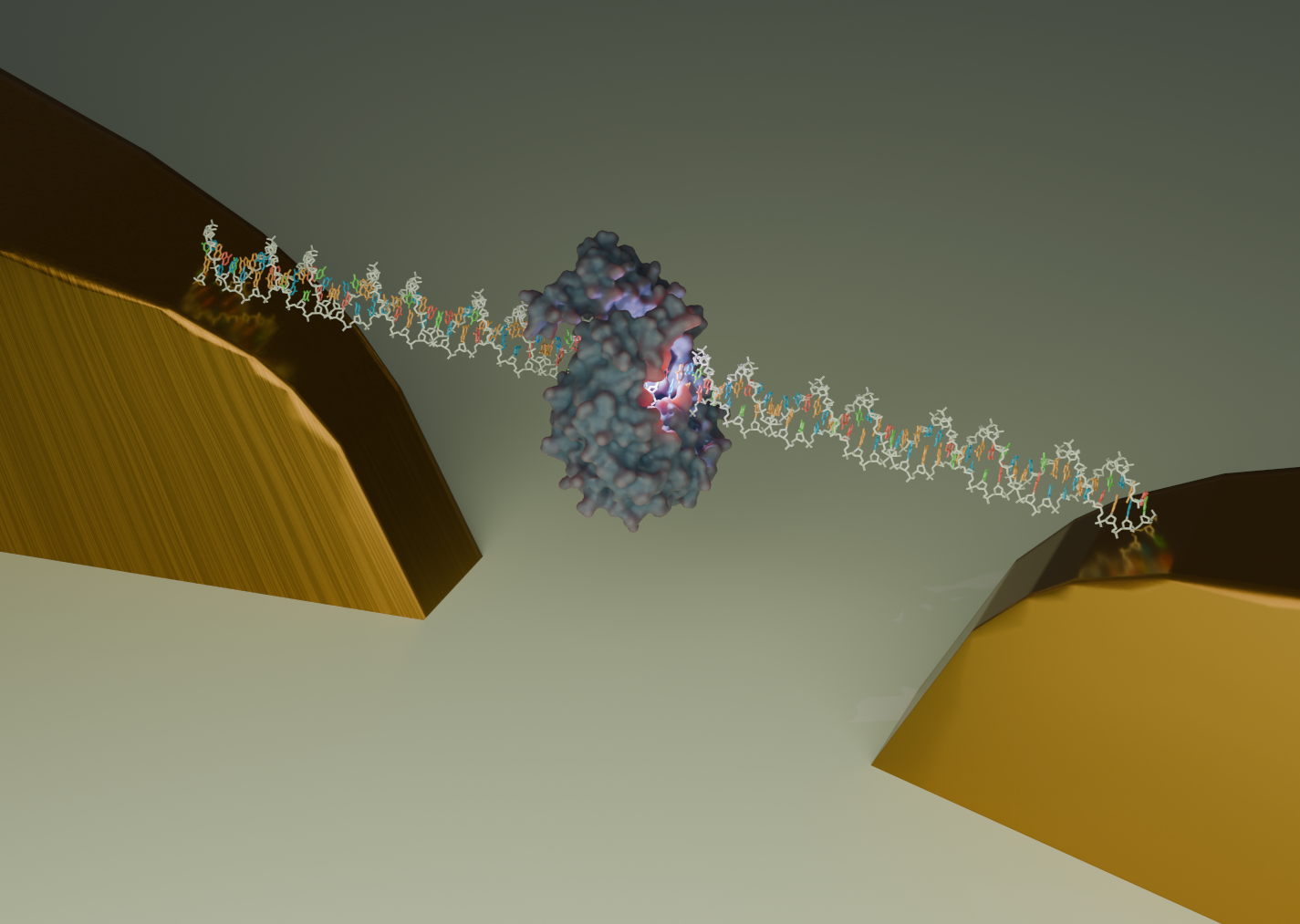Direct electrical control of protein nanomachines via DNA-based charge transport
PhD - Leuven | More than two weeks ago
As solid-state technology scales down to low single-digit nanometers, the costs of top-down nanofabrication rise exponentially. In contrast, bottom-up approaches enable the precise and reproducible assembly of complex nanoscale structures through self-assembly. As underscored by the 2016 Nobel Prize in Chemistry, harnessing bottom-up processes to create nanoscale molecular machines holds great promise to provide advances in fields ranging from nano-electronics to molecular diagnostics.
Proteins—nature’s molecular machines—can perform a diverse set of tasks with atomic precision, and interfacing of proteins with solid-state materials has applications in miniaturized biosensors (e.g., nanopore DNA sequencing), molecular computing (e.g., molecular circuits), and molecular machines (e.g., de novo DNA synthesis). Building such “hybrid” nanotechnological devices, however, requires efficient coupling of molecular activity to electronic signals. Here, DNA—nature’s information carrier—can serve as both a structural scaffold for the spatial organization of proteins and as a molecular electrical conduit, shuttling electric charge between solid-state devices and protein nanomachines.
This PhD project explores the use of DNA-based charge transport to electrically control protein activity at the single-molecule level. Specifically, you will (1) develop stable, site-specific conductive contacts between DNA and nanoscale electrodes, (2) study charge transport characteristics across various interfaces (e.g., solid state-DNA, DNA-protein), and (3) demonstrate control of single protein activity via DNA-based charge transfer. Insights gained will advance our ability to harness nature’s nanomachines for various applications.
You will work within a multidisciplinary team in imec’s international environment, involving hands-on work in state-of-the-art facilities (e.g., micro- and nanoelectrode fabrication, surface functionalization, electrochemical measurements, ...) and molecular modelling and theory of nanoscale phenomena. Imec seeks a highly motivated PhD candidate to develop cutting-edge nanotechnology at the interface of nanoelectronics, biochemistry, and electrochemistry.

Required background: Nanoscience and nanotechnology, Biochemistry, Biophysics, Electrochemistry
Type of work: 70% experimental, 20% simulation, 10% literature
Supervisor: Pol Van Dorpe
Co-supervisor: Philippe Vereecken
Daily advisor: Kherim Willems
The reference code for this position is 2025-131. Mention this reference code on your application form.
